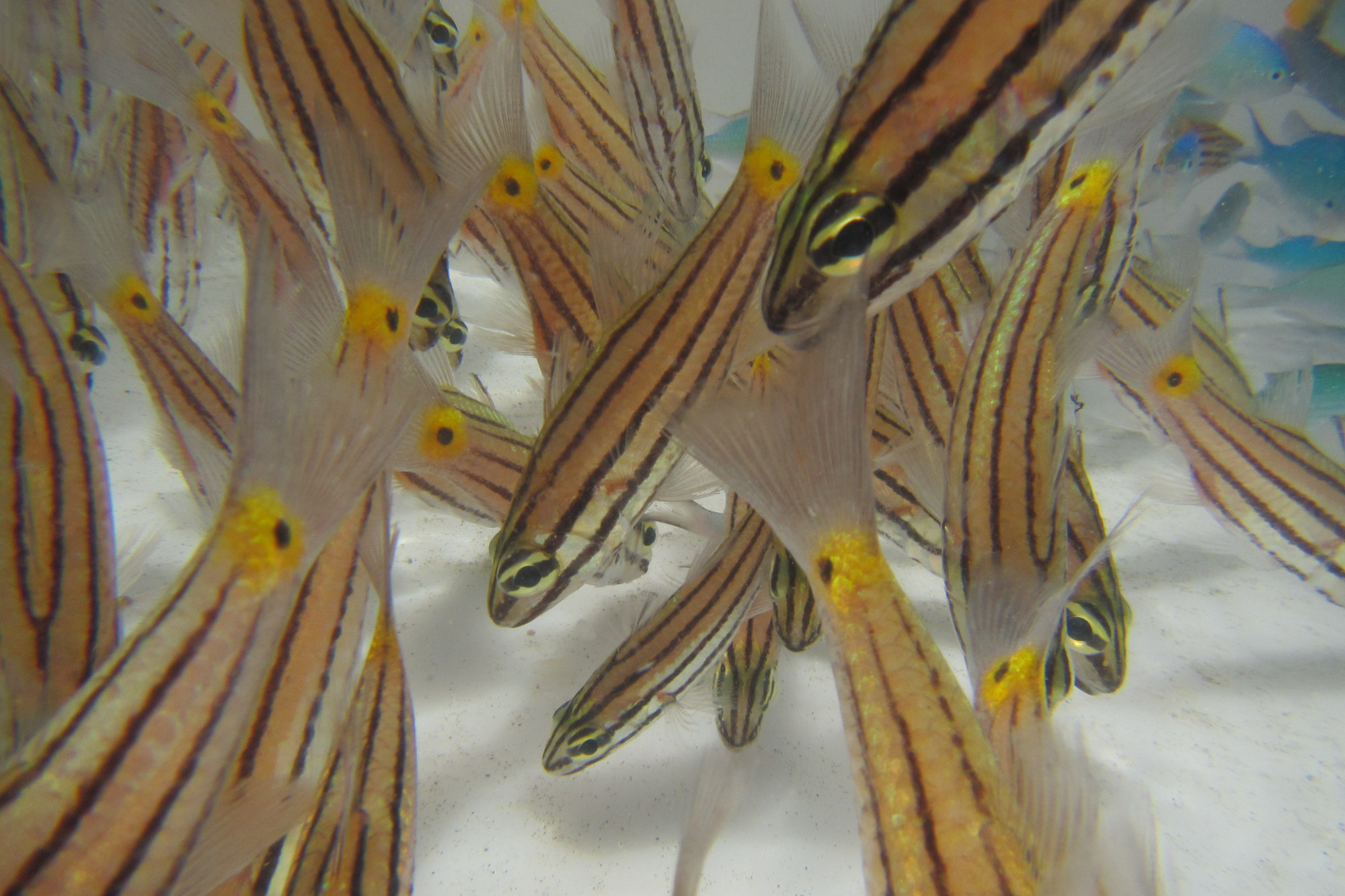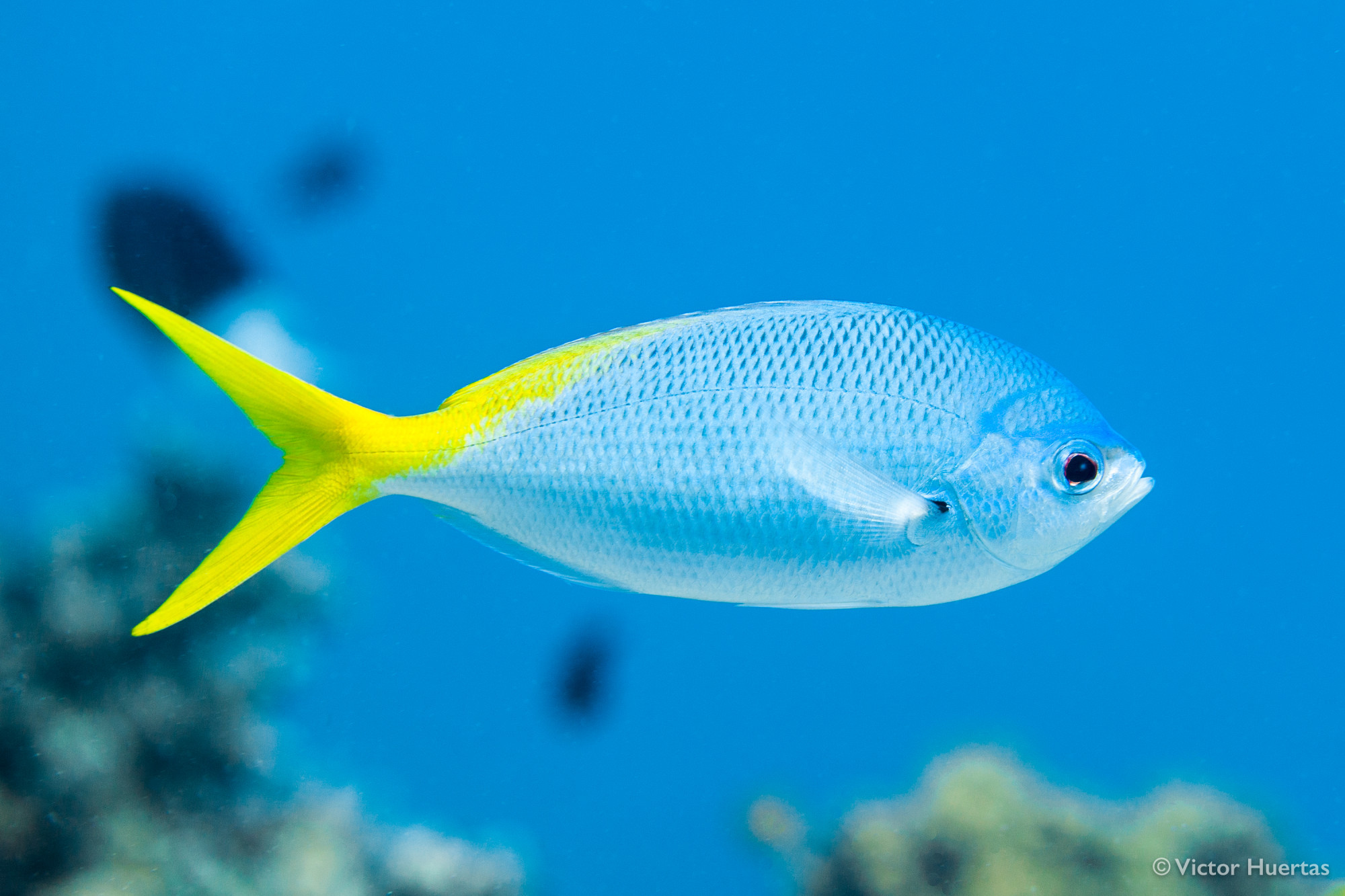General News
27 January, 2021
Reef fish futures foretold
We may be seeing a lot less cardinalfish on the Great Barrier Reef in the future, according to an international study that found the cute striped coral reef fish are among species which are less able to handle temperature increases as climate change heats up our oceans.

Associate Professor Jodie Rummer from James Cook University’s ARC Centre of Excellence for Coral Reef Studies co-authored the study to help identify which fish species will be the ‘winners and losers’ as climate change progresses over the next century.
The experiment exposed two species of coral reef fishes collected from the Great Barrier Reef to a temperature increase of just three-degrees Celsius, and measured their responses over the course of five weeks.
The redbelly yellowtail fusilier adjusted rapidly to thermal stress, with nearly immediate changes detected in gill morphology and blood parameters. But the five-lined cardinalfish response was delayed, and they seemed far less able to adjust to the elevated temperatures.
While the cardinalfish may seem a small and unremarkable reef fish, as part of the food chain, they and other vulnerable species of reef fish all play a role in the survival of coral reef ecosystems.
The Intergovernmental Panel on Climate Change predicts sea surface temperatures are expected to rise by 2.0–4.8˚C by the end of the 21st century, but worldwide oceans are already experiencing an increase in the frequency and severity of extreme heatwaves.
“Over just a few days, these heatwaves can increase water temperatures by as much as five degrees Celcius above seasonal average temperatures, and such heatwaves can last for several weeks,” said Dr Rummer.
Importantly, the team identified seven parameters across both species that may be useful as biomarkers for evaluating how fast and to what extent coral reef fishes can cope with elevated temperatures.
“This study is timely, given the rapid decline of tropical coral reefs worldwide, including the unprecedented and repeated mass coral bleaching and mortality events on the Great Barrier Reef in 2016, 2017, and 2020 – all caused by summer heatwaves,” said Dr Rummer.
“Collectively, we need to have an indication of which species are going to survive and which will be most vulnerable to climate change so we can take action. The decisions we make today will determine what coral reefs look like tomorrow.
“These findings are useful not only for scientists but also for managers, conservation planners, and policy makers charged with protecting these important ecosystems, not to mention communities who rely on coral reef fishes for food, culture, jobs, and livelihoods.”



